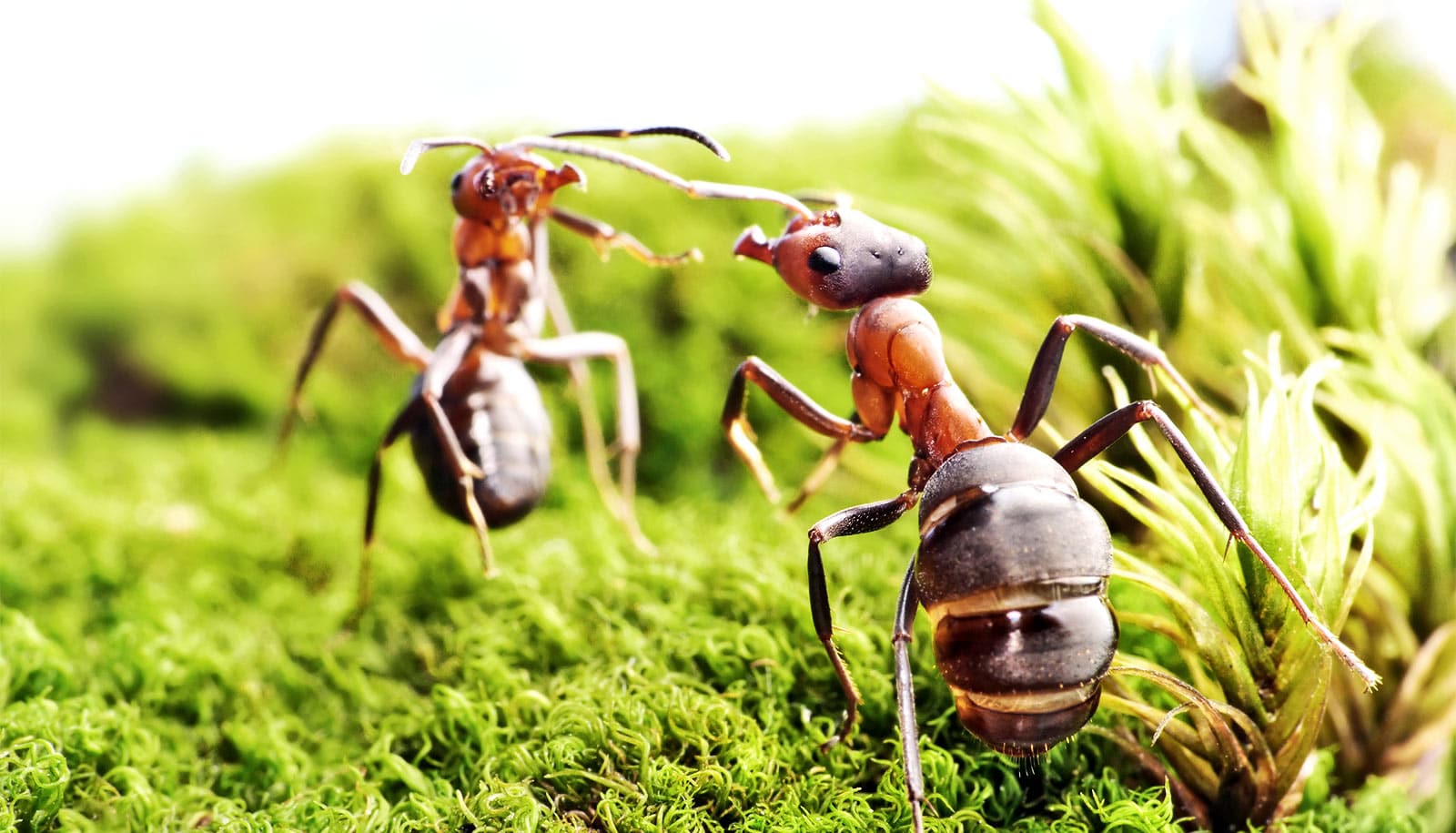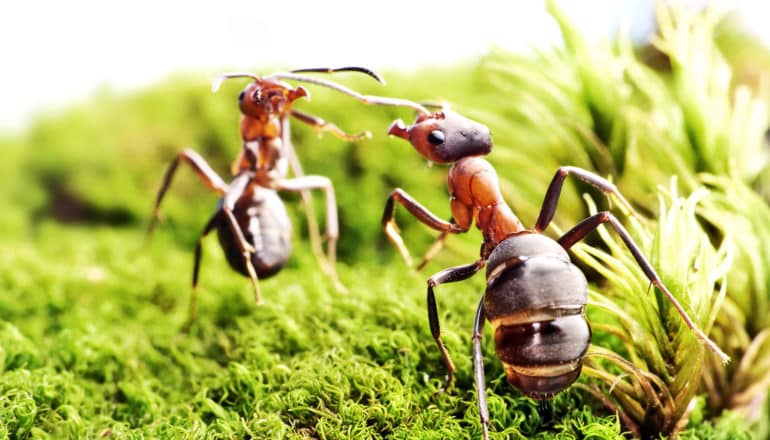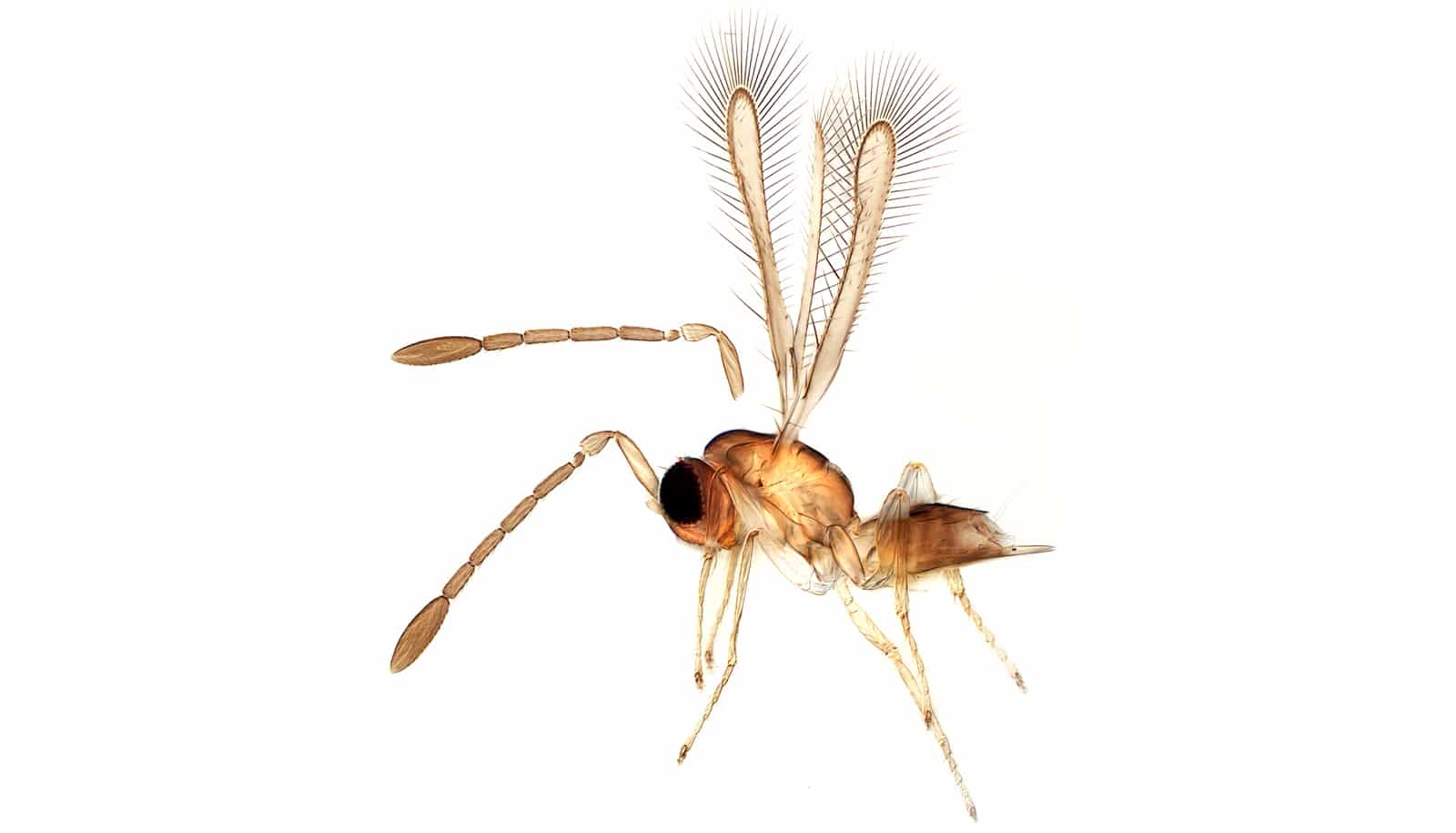
(Credit: Getty Images )
Ants have to ‘unlock’ anger toward intruders
When an intruding ant enters a colony, ants don't jump to action to defend their home right away. The right smell has to "unlock" their aggression.

Ants have a specific mechanism that’s responsible for unlocking aggressive behaviors toward other ants, researchers report.
For most social animals, even humans, the ability to distinguish friend versus foe can be a challenge that often can lead to knee-jerk aggression. When it comes to ants getting aggressive, there’s a more sophisticated method to their madness.
The research—the first to pinpoint this mechanism and its precise role—reports a social characteristic which could help account for their evolutionary success.
The research implies that ants default to acceptance and select aggression only if they are specifically triggered.
“Eusocial ants are one of the biggest success stories in evolutionary biology, thanks in no small part to their advanced organizational behaviors and complex social interactions,” says senior author Laurence Zwiebel, chair of biological sciences at Vanderbilt University.
“For years, researchers have hypothesized that ants have specific chemical markers which play key roles in their interactions. What surprised us is that ants not only have these markers, but require these signals be very precisely decoded by specific receptors to trigger aggression.”
One of the most important aspects of ant identity is the ability to distinguish nestmates from non-nestmates that typically act as bad actors. To do this, they rely on chemical markers made up of specific odorants on their bodies, which Zwiebel refers to as a “coat of many odors,” to emit complex odor blends that act as a sort of personal identifier for other ants.
In this study, the researchers discovered that ants have to smell and correctly decode these specific compounds on intruders from other colonies in order to “unlock” their aggressive behavior and defend their nest. This implies that they default to acceptance and select aggression only if they are specifically triggered.
To study this “lock and key” mechanism, Zwiebel and graduate student Stephen Ferguson, the lead author on the study, gathered Camponotus floridanus ants from nine distinct colonies collected across the Florida Keys.
Before testing, they used a specific chemical agent the Zwiebel lab previously discovered to block or overexcite ant odorant receptors. They set up mini-dueling arenas for two ants (either from the same or different colonies) to interact and, if they decide, fight. Researchers recorded each arena test to score the interactions based on their aggressive behaviors—the most common being lunging, biting, or dragging.
While ants with normal receptors continued to recognize and fight those from other colonies, ants with blocked or over-activated receptors displayed dramatically reduced aggressive behavior.
“Accepting friends and rejecting foes is one of the most important decisions an ant worker must make,” says Ferguson. “Our study finds that unless there is a clear and unambiguous threat, ants are more likely to be accepting than they are to be aggressive. This process may have contributed to the evolutionary success of these insects, and there may be important lessons about tempering aggression for other social beings such as humans.”
The study appears in the Journal of Experimental Biology. Support for the research came from the National Institutes of Health and Vanderbilt University.
Source: Vanderbilt University
The post Ants have to ‘unlock’ anger toward intruders appeared first on Futurity.
Share this article:
This article uses material from the Futurity article, and is licenced under a CC BY-SA 4.0 International License. Images, videos and audio are available under their respective licenses.
Related Articles:
Our breath gets mosquitoes looking out for blood
July 22, 2019 • futurityTo compare insect brains, make bug brain ‘soup’
April 21, 2021 • futurityLinks/images:
- https://www.futurity.org/ants-smell-communication-1481182/
- https://www.futurity.org/ants-pheromones-antennae-1512422-2/
- https://doi.org/10.1242/jeb.215400
- https://news.vanderbilt.edu/2020/02/03/how-ants-get-angry-precise-lock-and-key-process-regulates-aggression-acceptance/
- https://www.futurity.org/ants-aggressive-behavior-2271132/
- https://www.futurity.org


